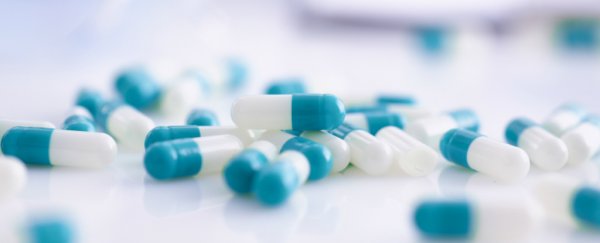The US Food and Drug Administration (FDA) is putting doctors and patients on high alert after several drugs that were made in China were found to contain a possible human carcinogen.
The FDA is still reviewing the recalled products, but in the meantime, three companies based in the US have agreed to stop selling specific medications that contain valsartan - an ingredient commonly used to treat high blood pressure and heart failure.
"We have carefully assessed the valsartan-containing medications sold in the United States, and we've found that the valsartan sold by these specific companies does not meet our safety standards," said Janet Woodcock, director of the FDA's Center for Drug Evaluation and Research, in a press release.
"That is why we've asked these companies to take immediate action to protect patients."
To be clear, not all products containing valsartan are being recalled, just the ones that were found to contain N-nitrosodimethylamine (NDMA), which is classified by the US Environmental Protection Agency (EPA) as a probable human carcinogen.
What's interesting, however, is that every single one of these contaminated products was made in China by the same company, Zhejiang Huahai Pharmaceutical Co. Ltd.
The FDA is warning patients who take valsartan to make sure their medication was not manufactured by the offending company. If the medication's label does not explicitly name the manufacturer, or if there is any confusion whatsoever, the agency is advising patients to call their pharmacy and make sure their drug is not part of the recall.
For some patients, however, valsartan is a life-saving drug, and giving up treatment is not an option. In these cases, the FDA has told patients to continue taking the drug until their health care provider is able to provide them with a substitute.
"The FDA is committed to maintaining our gold standard for safety and efficacy. That includes our efforts to ensure the quality of drugs and the safe manner in which they're manufactured," said Scott Gottlieb, the FDA commissioner.
"When we identify lapses in the quality of drugs and problems with their manufacturing that have the potential to create risks to patients, we're committed to taking swift action to alert the public and help facilitate the removal of the products from the market."
As swift as the FDA's response appears to be, the whole issue has re-ignited an important conversation regarding how the US can ensure the safety of imported drugs in the future - especially as imported drugs become more and more common.
The FDA has assured the public that it is investigating the levels of NDMA in the recalled products and exploring measures that can reduce or eliminate impure batches in the future.
"As we seek the removal of certain drug products today, our drug shortages team is also working hard to ensure patients' therapeutic needs are met in the United States with an adequate supply of unaffected medications," said Gottlieb.
Some health experts, however, are worried that the problem is spiralling out of control. Harry Lever, a cardiologist at the Cleveland Clinic, made his concerns as a doctor clear to the New York Times.
"It's not just valsartan," said Lever.
"It's becoming very difficult for me to write prescriptions at all. There are so many drugs that are coming in from India and China and companies are buying and selling each other and you don't know what's what."
